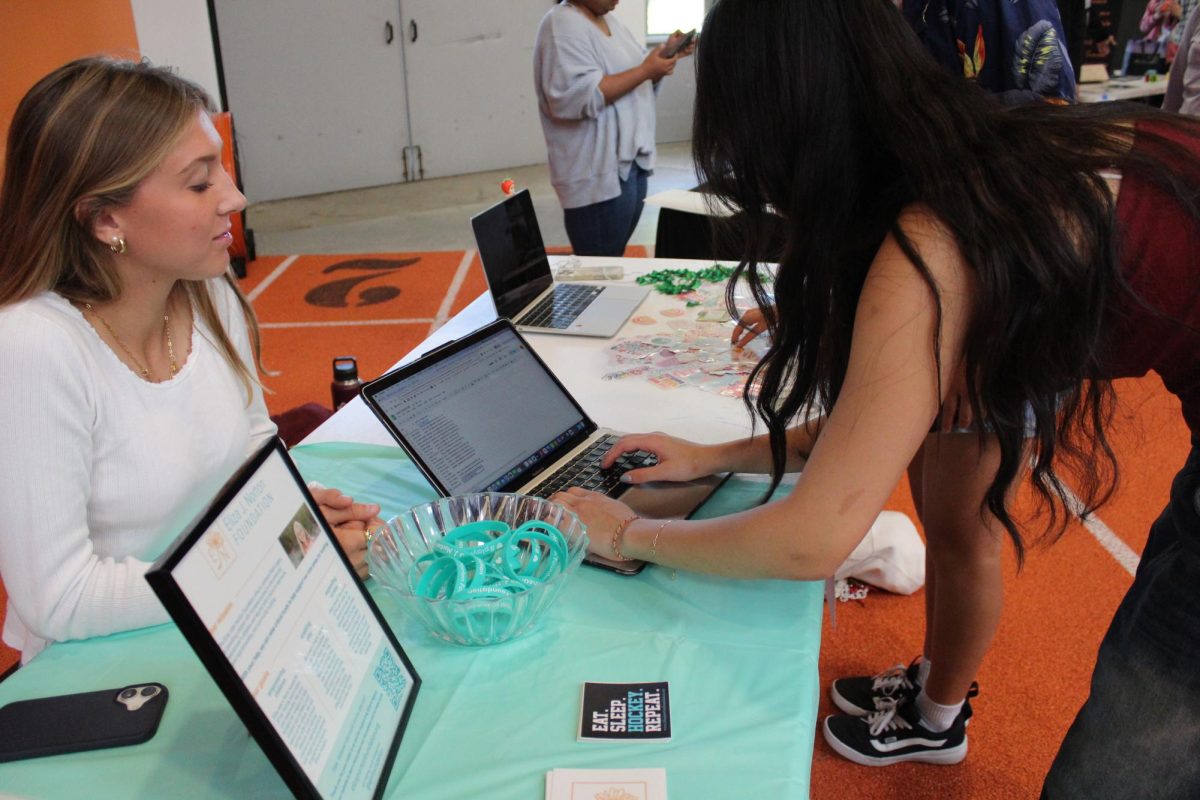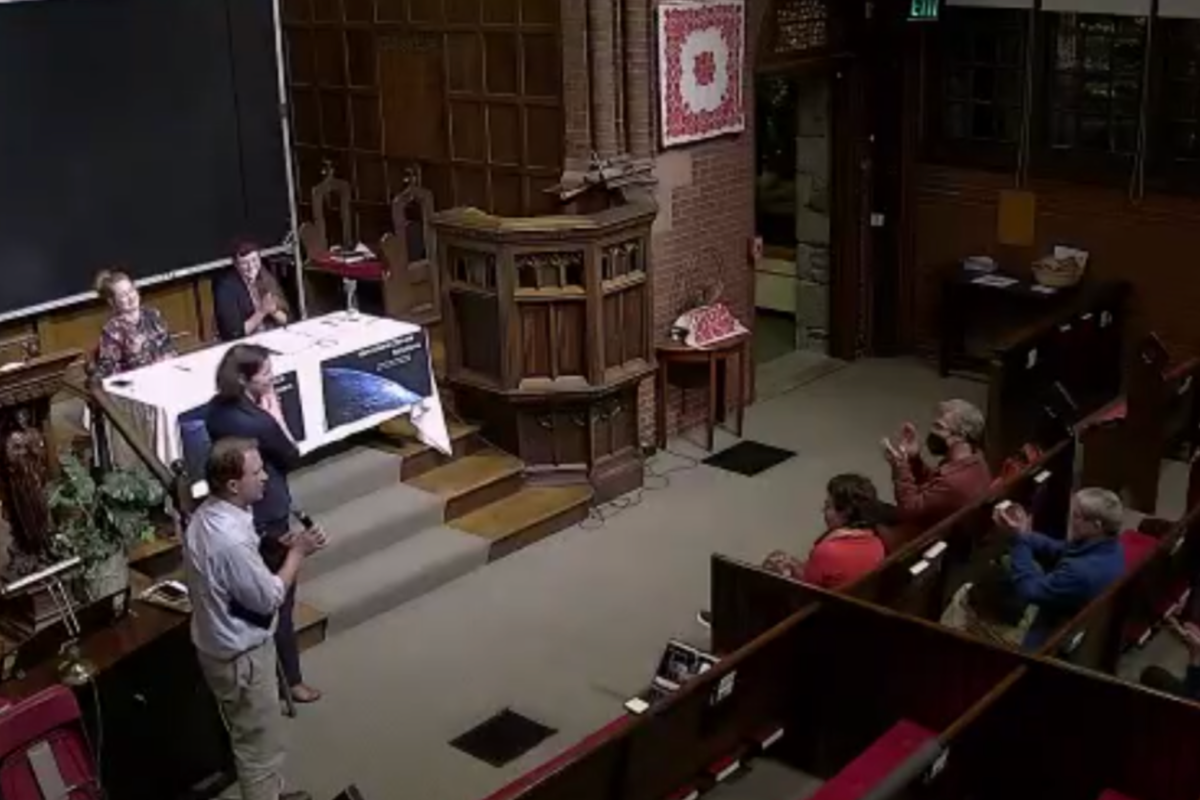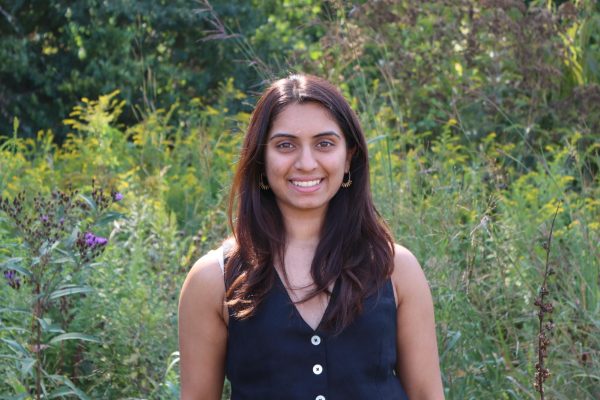On Sept. 28 at 7 p.m, MetroWest Climate Solutions (MWCS) hosted a panel roundtable discussion at First Parish Church in Weston. The discussion featured Weston’s Sustainability Coordinator Julie Gagen and Wayland’s Sustainability Manager Abigail Shute. Natick’s Director of Sustainability Jillian Wilson-Martin was also supposed to be in attendance, but was unable to attend. People could watch the meeting in-person or join via Zoom.
The meeting began with opening remarks from MWCS board member Jeff Barz-Snell. Barz-Snell stressed the importance of climate change, as well as the necessity for community sustainability leadership positions to implement climate solutions in the MetroWest area. Barz-Snell also stated that spreading climate change awareness in the area is MWCS’ mission.
“Our mission is to foster sustainable, resilient and low carbon communities, and host timely and relevant events that encourage people in organizations to get involved and bring about solutions to some of the great challenges of our times,” Barz-Snell said.
The meeting was moderated by Weston resident Katharina Wilkins. At the beginning of the discussion, Gagen and Shute told audience members about projects they have been working on respectively, as well as significant issues and challenges within their communities.
Gagen has been the Sustainability Coordinator for Weston for almost a year, and Shute has been the Sustainability Manager for Wayland for roughly five months. Shute is the first person to occupy the Sustainability Manager position in Wayland’s history. Like several towns in the area, Gagen and Shute explained that the recent introduction of sustainability leaders at municipal levels is due to the increasing urgency of climate change.
Even though she is the first Sustainability Manager in Wayland, Shute says that the work of initiatives like the Energy and Climate Committee have set in motion more sustainable practices in the town.
“Right now, we have over 350 residents who have solar installations [on their homes], and we’ve got many hybrid and electric vehicles in town,” Shute said. “Essentially, all the work that [the Energy and Climate Committee has] done has really teed up what I’m working on, which is the Climate Action Plan.”
Other than continuing work on ongoing projects in Wayland, Shute has also focused on attaining heat pumps for senior citizens, who don’t have the same access and modes of transportation in times of extreme cold or heat, like other Wayland residents.
“Seniors specifically are of concern for us because they’re more vulnerable to heat than our other residents,” Shute said. “We’re looking to create a framework where we can engage residents, and get them to voice their opinions and concerns [so they can] then provide the town with feedback on where we can go from here.”
A large part of both Gagen and Shute’s jobs are securing grants and funding for their initiatives. They both believe that because of the competitiveness of securing state and federal funding, being able to work with other individuals and communities is crucial to receiving money.
“What I’ve found is that the most effective way to get things done is to look at who’s in the room and who’s interested in working on projects and finding opportunities for us,” Gagen said. “[We look for someone who can] look at the goals that we have ahead of us, make some easy connections and get things started.”
Members of the audience, both in person and virtual, were able to ask Gagen and Shute questions. They were asked about their efforts to help low-income households. Shute explained that engaging with low-income residents of Wayland is a top priority of hers, as Wayland is at 11% for low income housing.
“[Low-income residents are] typically not as likely to engage [in sustainability discussions as] our senior [residents],” Shute said. “They may still be working because they can’t afford to retire, so that’s definitely something that we’re really keeping on our radar.”
An educator in the audience asked panel members about their efforts to combat climate change in schools as well as spreading awareness about the issue. Shute responded that she has been working with committees in the town as well as passionate high school students about spreading climate literacy. She has also taken a look at the energy use of schools in the town.
“Being part of the schools is definitely something that I want to involve myself more in as a town,” Shute said. “We pulled in all of our schools’ utility bills as one, which is starting to sort of bridge the gap between municipal and schoolwork.”
Furthermore, Gagen has met with Weston community leaders to discuss implementing curriculum on climate change in school.
“I have been fortunate to come in with a very active Parent Teacher Organization (PTO) that cares about climate and that has continued to find opportunities for me to work with the schools,” Gagen said. “The result is that I have met with the curriculum director and talked about ways in which we can incorporate climate curriculum [from] kindergarten [through] grade 12.”
Gagen also tries to provide opportunities for students to get involved in implementing sustainability plans in the community. She wants to be able to equip students with skills they may use in the future when they deal with worsening effects of climate change.
“This is the number one issue that our students today are going to face throughout their lives,” Gagen said. “It will affect them in many, many ways. Whenever there’s change, there is opportunity, so I really try to pitch [climate change] as something that is an opportunity to create leadership and create a different set of skills that are needed to be able to tackle these challenges.”
Shute and Gagen stressed the importance of working with other communities in the area in order to secure grants and to incentivize other towns to implement more concrete plans to combat climate change. Wilkins believes that local climate change work is essential to spreading awareness and municipal-based action.
“This gives me great hope that a lot of what we’re doing now is not just about us very micro-locally,” Wilkins said. “It’s bigger than just our little towns individually, and that makes for more power and more change faster.”




























Barb Heffner • Oct 12, 2023 at 4:55 PM
Great summary of the evening!